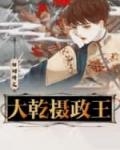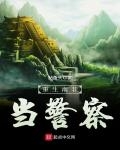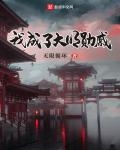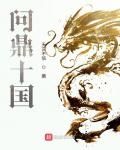Chapter 33: Chinese and Savages
The human trafficker was afraid that the slave's words would anger Qingji and cause his deal to fail.
But Qingji didn't care!
"What are the conditions?"
The slave pointed to a wooden cage not far away, where a thin, pale-faced boy of about ten years old was imprisoned.
The slave said in a muffled voice, "He is the son of an old friend of mine. His father saved my life. If you can redeem him, I will follow you all my life, even if it means sacrificing my life for you!"
"good!"
Qingji agreed immediately.
He looked at the slave in the bronze cage with great admiration!
This person is truly loyal and righteous, which is extraordinary.
Apart from anything else, this man's noble character and extraordinary conversation were enough for Qingji to guess that his background must be extraordinary!
You know, people in ancient times did not necessarily always quibble about words.
In daily spoken language, ordinary people use very concise language in conversation. Only people of aristocratic origin (intellectuals) can have extraordinary conversation!
Qingji immediately took out a bag of horseshoe gold from his bosom and redeemed the slave.
As for the "son of an old friend", he was treated as a gift and redeemed!
After leaving the dental clinic, Qingji started chatting with the slave again.
We learned that he was a Chu person named Xiong Zidan, and came from the prominent royal family of Chu!
Xiong Zidan’s great-grandfather was the famous King Zhuang of Chu.
Logically speaking, as a descendant of King Zhuang of Chu, Xiong Zidan should not have been so destitute, even to the point of being treated as a slave.
But sometimes, it’s really fate!
Xiong Zidan's grandfather was a general who conquered the Dian barbarians in the south of the Chu State, but the battle was unsuccessful and the Chu army's retreat was cut off. They were trapped in the barbarian land and could not return.
As a result, the Chu army could only temporarily settle down in Yunnan and wait for rescue.
However, the long period of silence, coupled with years of guerrilla warfare with the cunning Dian Man, finally made most of the Chu army soldiers unable to bear it and began to flee on a large scale.
Xiong Zidan's father had no choice but to lead the few remaining Chu troops on their journey home!
Unfortunately, most of these Chu people fell seriously ill and passed away.
Xiong Zidan himself survived by chance!
He originally wanted to follow his father's will and return to the State of Chu, but unexpectedly he entered the State of Wu by accident.
Eventually, Xiong Zidan was captured by a large group of slave catchers because he was outnumbered, and was not redeemed until today by Qingji!
After learning about Xiong Zidan's experience, Qingji and Sun Wu both expressed deep sympathy.
How can we not sigh that the descendants of the great Chu State, the descendants of King Zhuang of Chu, have fallen to such a state?
However, if Xiong Zidan returned to Chu, I am afraid that the people of Chu might not necessarily accept him.
Because the incident happened so long ago, the Chu people had long forgotten the army that was sent to the Yunnan expedition.
As for Xiong Zidan, he was just the son of his father and the Dian woman. His bloodline was unclear. It would be strange for the Chu people to acknowledge and accept him!
This kind of slave hunting is actually not uncommon in countries around the world. It is even as common as ordinary hunting.
During the Western Zhou Dynasty, the people of the world were mainly divided into two types: one was the Chinese and the other was the barbarians!
After the Zhou people destroyed the Shang Dynasty, they abandoned the relatively primitive and barbaric slavery system of the Shang Dynasty and replaced it with a feudal system. However, this system did not mean that there were no slaves!
The Zhou people exiled the remnants of the Shang Dynasty, prisoners of war, conquered foreigners from surrounding areas and other non-Zhou people. They were called barbarians and were only fit to farm the land, with very few opportunities for upward mobility.
The Zhou Dynasty implemented a feudal system, with a total of five ranks of nobility, from high to low: Duke, Marquis, Earl, Viscount, and Baron.
Although the State of Wu had declared itself a king, it was still a viscount of the fourth rank among the vassal states bestowed by the Zhou emperor!
This is a pyramid-like ruling structure.
The corresponding ruling positions are the emperor, princes, ministers, and scholars, and they are hereditary.
For the common people, that is, the Chinese people, the Chinese people have relatively greater authority. They are the basis of the rule of the aristocratic class. The Chinese people can not only farm, but also serve as soldiers, participate in political and economic life, and achieve promotion to the rank of soldier!
Moreover, the power of the people is not small, and they can even decide the position of the candidate for the monarch.
The most famous case is the "People's Riot" during the reign of King Li of Zhou, when the people, unable to bear the exploitation, directly executed the king!
In short, the difference between Chinese people and barbarians lies in their household registration!
Like the modern household registration system.
Household registration is related to everyone’s housing, education, medical care, retirement, etc., some of the most important things in a person’s life are closely related to it.
During the Western Zhou Dynasty, the urban population was called the people of the country and the rural population was called the wild people.
Slaves, as the lowest level of existence, naturally have no household registration, that is, they are illegal residents.
In the era in which Qingji lived, due to frequent wars, the concepts of Chinese and barbarians had become confused.
The "people of the country" represent nobles such as dukes and ministers, the "common people" represent ordinary people, and the "barbarians" are the people of other countries who have fled and are landless.
Savages can be turned into slaves at any time and anywhere!
Because they were illegal immigrants, once they were caught by slave hunters or government officials, what awaited them would be a miserable and dark life as a slave.
The slave trade was basically legalized in all countries.
Not to mention a remote place like Wu, even in the Central Plains countries such as Jin, Qi, Song, Wei, and Lu, which claimed to be countries of etiquette, slavery was very prevalent!
The origins of slaves were nothing more than savages, prisoners of war, prisoners, descendants of criminals, etc.
Xiong Zidan is one of the most miserable people.
The savages without household registration became valuable prey in the eyes of slave hunters!
…
After returning to the King of Wu's palace, Qingji settled Xiong Zidan and the son of his old friend, and then sat opposite Sun Wu in a side hall to discuss important matters.
"Changqing, today I have made great gains from this incognito visit with you."
Qingji sighed and said, "I want to implement a new policy in Wu State. Perhaps, I can start from this!"
"Your Majesty, are you talking about slavery?"
"Exactly."
Qingji nodded slightly and said: "The slave system is very harmful to people. It is inhumane to individuals and detrimental to the country!"
"I have previously looked through the household registration records of the Wu Kingdom and discovered that during the time of our former king Liao, ten years ago, the people of our Great Wu were no more than 140,000 households, with a population of only 830,000!"
"After so many years, the population of Wu is only 850,000!"
“Why is the growth rate of household registration so slow?”
"What's the problem?"
Hearing this, Sun Wu couldn't help but ponder for a moment, then replied: "Your Majesty, perhaps it is because ."
"Impossible, absolutely impossible!"
Qingji said in a resounding voice: "Even if we exclude the soldiers and civilians who died in the war and the missing people, the population of our Great Wu should not grow so slowly!"






